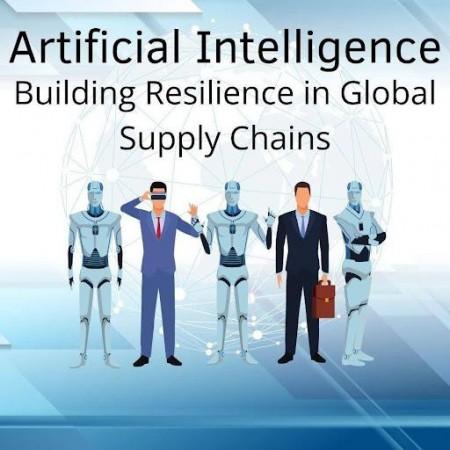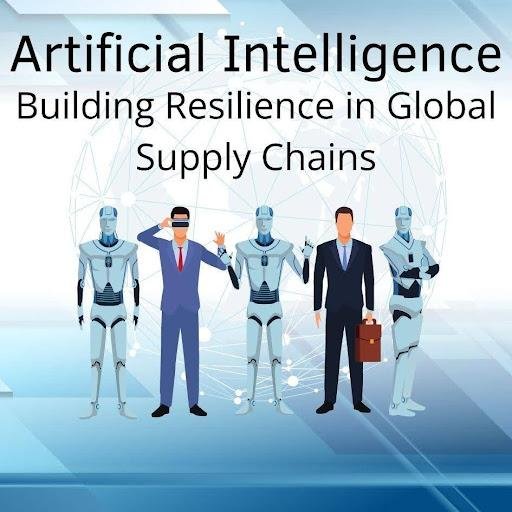
As global supply chain disruptions intensify, the author Madhusudan Sharma Vadigicherlaexpert in enterprise AI applications, examines how artificial intelligence (AI) drives resilience in supply chains. This article highlights AI-driven innovations that address data overload, improve predictive accuracy, and improve risk management within supply chain networks.
Addressing complexity with AI
Modern supply chains are increasingly complex and often involve hundreds of interconnected systems. AI steps in to manage this complexity by sifting through large amounts of data to identify patterns and trends. By quickly processing supply chain data, AI reduces the burden on human analysts, thereby improving operational efficiency and decision-making speed. This ability to manage large data sets allows organizations to make sense of their operations in real time, which is crucial in today’s rapidly evolving digital environment.
Predictive analytics for demand and inventory management
The predictive power of AI revolutionizes demand forecasting and inventory management by accurately anticipating changes in demand through analysis of historical data and real-time market trends. This capability allows businesses to maintain optimal inventory levels, minimizing the risk of shortages or overstocks. With AI-based demand sensing, supply chain managers can quickly adapt to fluctuations, improving service quality while reducing costs associated with excess or insufficient inventory, thereby achieving greater operational efficiency.
Improved forecasting with regression models
AI improves forecast accuracy using advanced regression models that identify relationships between key supply chain factors. By analyzing historical and real-time data, these models predict future trends with greater accuracy, effectively managing the volatility in consumer demand that traditional methods often overlook. Therefore, AI-driven forecasts enable supply chain managers to make informed decisions, ensuring smoother operations, optimized inventory levels and less disruption, thereby improving the resilience and responsiveness of the supply chain.
Real-time decision making
AI’s ability to make real-time decisions marks a significant advancement in supply chain management. Using machine learning algorithms, AI autonomously handles tasks like replenishing inventory or adjusting delivery schedules based on live data inputs. This capability not only accelerates the speed and accuracy of decision-making, but also enables instant response to market changes, minimizing delays, reducing stock-outs, and maintaining service levels to efficiently meet expectations. customers.
Improving Resilience Through Supplier Network Optimization
The resilience of supply chains depends heavily on the strength of supplier networks. AI helps evaluate supplier performance and identify potential risks. By continuously analyzing supplier data, AI detects patterns suggesting future disruptions or quality issues, allowing businesses to optimize their relationships and ensure network stability and reliability.
Fighting fraud and ensuring compliance
AI excels in fraud detection and compliance management, essential to global supply chains. By analyzing transaction data and supplier behaviors, AI identifies anomalies that signal potential fraud, enabling proactive action to be taken. AI-based systems also quickly adapt to regulatory changes, ensuring compliance and strengthening supply chain integrity within international standards.
Integration of biometric and secure authentication
AI improves supply chain resilience by securing data management and authentication. Advanced biometric and cryptographic systems provide secure access to sensitive information, essential for organizations managing data across multiple platforms. This reduces the risk of unauthorized access, strengthens protection against data breaches and increases confidence in digital operations.
The future impact of AI on supply chain management
The role of AI in supply chain management will deepen, with advances in predictive power, autonomous decision-making and fraud detection improving resilience and efficiency. As AI adoption grows, it will drive increased collaboration across supply chain networks, driving innovation and providing businesses with a competitive advantage.
In conclusion, Madhusudan Sharma Vadigicherla highlights that AI is essential to modernizing and strengthening global supply chains. Through advanced analytics, secure data management and predictive insights, AI enables organizations to address key challenges, from demand forecasting to fraud detection. As AI advances, it is set to redefine operational resilience, guiding businesses through global complexities with confidence.
